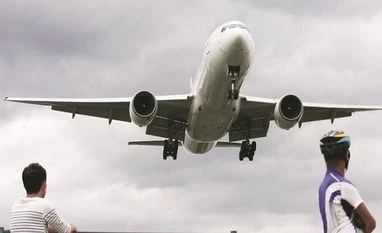EU lawmakers approved Wednesday new rules requiring airlines to use more sustainable fuels across the bloc in a bid to help decarbonise the sector.
Under the new standards adopted during a European Parliament plenary session in Strasbourg, France, 2 per cent of jet fuel must be sustainable as of 2025, with this share increasing every five years to reach 70 per cent by 2050.
The Parliament said that sustainable fuels will include synthetic fuels, certain biofuels produced from agricultural or forestry residues, algae, bio-waste, used cooking oil or certain animal fats."
Recycled jet fuels produced from waste gases and waste plastic, as well as renewable hydrogen, will be considered green, while food crop-based fuels and fuels derived from palm and soy materials won't.
The aviation sector accounts for 13.9 per cent of transportation emissions in the EU, making it the second biggest source of greenhouse gas emissions in the sector after road transport, the European Commission said. If global aviation were a country, it would rank in the top 10 emitters.
The legislation is part of the EU's Fit for 55 package, which sets a goal of cutting emissions of the gases that cause global warming by at least 55 per cent by 2030. The EU has also set a goal of reaching climate neutrality by 2050. It says it needs to cut transport emissions by 90 per cent compared to 1990 levels to achieve this.
The new rules were adopted by 518 votes in favour, 97 votes against and eight abstentions. Once endorsed by EU member countries, they will enter into force as of January 2024.
More From This Section
The European Commission said earlier this year that the move is expected to reduce aircraft carbon emissions by two-thirds by 2050 compared to a no action' scenario."
However, stocks of sustainable aviation fuel remain low. The EU Aviation Safety Agency says supply accounts for less than 0.05 per cent of total EU aviation fuel use.
Aviation also faces competition from other sectors. On September 5, the head of the German airline Lufthansa warned automakers to keep their hands off synthetic aviation fuels. Carsten Spohr said sustainable fuels represented the only workable way to decarbonize aviation, and there wouldn't be enough for the car industry as well.
)